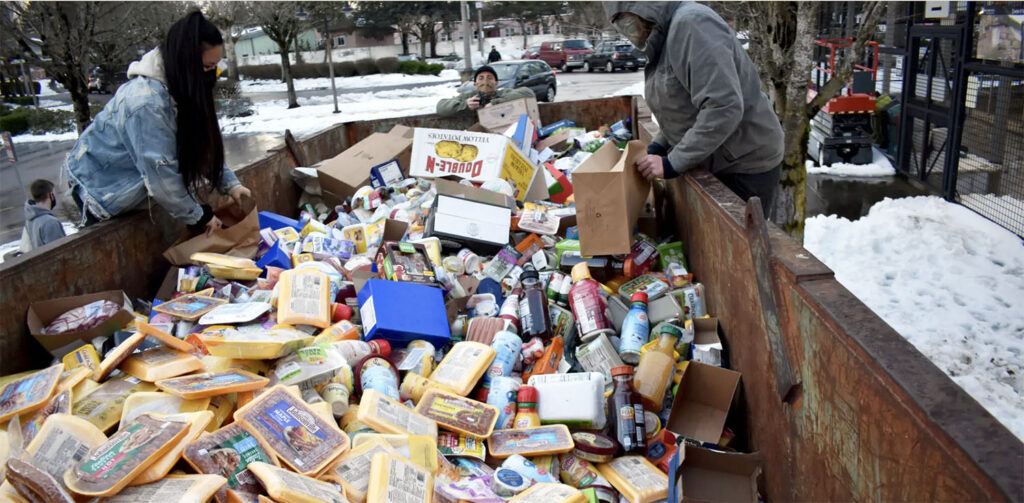By Saul Myhre, Alliance Intern from the University of Minnesota Twin Cities ’21 and Olivia Salzwedel, Alliance Intern from University of Minnesota Morris ’22
34 million Americans face food insecurity every day, states Move for Hunger. But it doesn’t have to be that way. More than 25% of America’s 4 billion tons of food is wasted every year — 1.3 billion tons of food thrown away. Some of this food is wasted when crops are tossed because they aren’t up to code or livestock die from horrendous living conditions, explains Gen V. But it also happens from food service waste. Gen V says 38% of US food is wasted — 330 million pounds of food waste daily — more than enough to feed everyone.
Having worked in food and hospitality, we’ve witnessed enormous amounts of this perfectly fine food being trashed because it isn’t “fit for customers.” Of the numerous places we have worked, none have participated in a food donation program. It’s obnoxious when there are so many people in food deserts struggling to make ends meet. It’s ridiculous that health codes and other policies restrict or forbid the sharing of perfectly healthy extra food.
Fortunately, there are innovative solutions that can transform this waste into feeding people. Some food services allow employees to take leftovers. However, we have found that there is so much food taken home that much still ends up in the trash.
A more viable solution for prepared foods is the app “Too Good to Go.” It allows restaurants, supermarkets and event venues to sell leftover and soon-to-expire food at a marked-down price in “surprise bags,” according to the NYT. Businesses get good will and make money, customers get great food at 2/3 off and food waste doesn’t fill our landfills and emit the greenhouse gas methane.
If restaurants and other food services donated or sold their extra food rather than throwing it away there would be so many more happy, full bellies and less of a waste problem. It would be a win-win-win situation.
Finally, another great solution is being led by companies like Imperfect Foods, which sells fruits, vegetables and pantry items that are oddly shaped, too small or big or made with rescued or upcycled ingredients. This gives farmers a way to sell their less than perfect specimens, and consumers get farmers market quality at supermarket prices. Imperfect delivers groceries to your entire neighborhood in one trip, with one van — helping avoid tons of CO2. After dropping off your order in 100% recycled boxes, they take back your packaging and reuse or recycle it.
You can play an active role in supporting these efforts to end food waste and call for larger systems change to assure everyone has enough food to eat.

